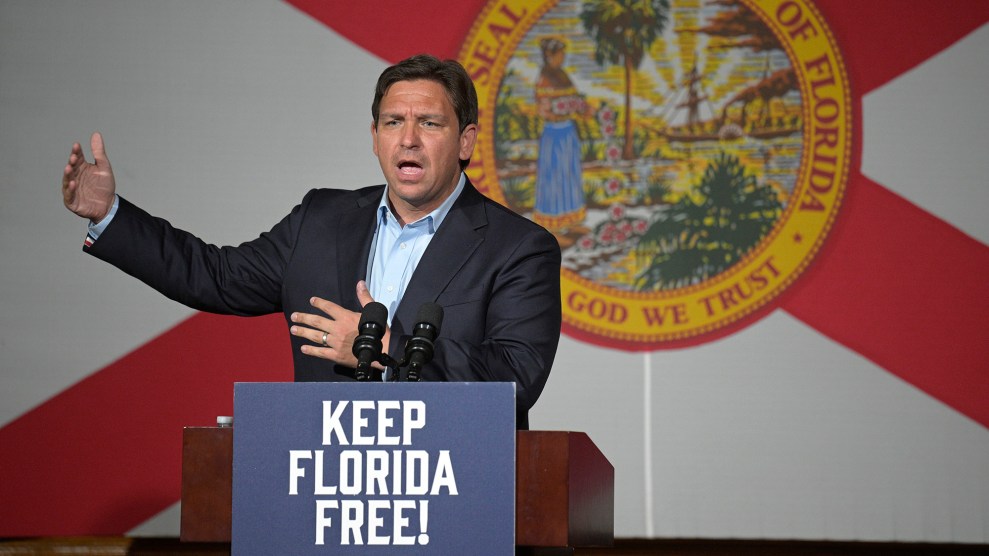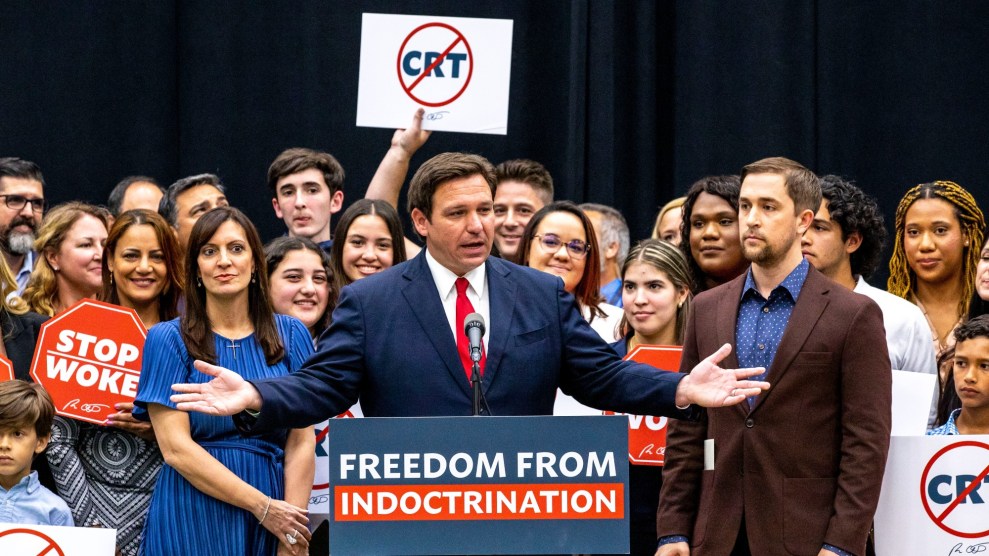
Phelan M. Ebenhack/Washington Post/Getty
The College Board released the curriculum for its new AP African American Studies course Wednesday, revealing that the group had stripped the course of the topics that prompted Florida Gov. Ron DeSantis to ban the course. It will no longer contain certain material that DeSantis, who seeks to erase LGBTQ and Black experiences from school classrooms, found objectionable. Welcome to Black History Month!
The College Board, which administers tests for Advanced Placement courses, denies that it bowed to political pressure. Instead, the group’s president told the New York Times that high schoolers currently testing the course struggled with “quite dense” theoretical material. What a coincidence! Turns out that students apparently can’t understand exactly the sort of material to which DeSantis and his political allies object.
The revised curriculum expunges discussion of modern initiatives for equality or racial justice, including Black Lives Matter, Queer social movements, affirmative action, and the push for reparations. The new curriculum no longer features seminal figures in modern Black thought, including Kimberlé Crenshaw, a law professor whose work is foundational to critical race theory and intersectionality and who had been included before.
The result is a course that traces the Black experience from Africa, through slavery, Jim Crow, and the Civil Rights Movement, but mostly stops around 1980. Reading the framework, it appears that the enduring legacy of that earlier history is not reflected in the course material, which now fails to acknowledge the movements, thinking, and people grappling with that history and advocating for racial justice over the last four decades.
The demoted topics have been relegated to optional independent research topics, but that list “can be refined by states and districts,” the College Board noted. The list of now optional topics serves as a handy guide to what the curriculum lacks:
- Affirmative Action: approaches and controversies
- Black Lives Matter: Origins, impacts, critics
- Reparations debates in the U.S. / the Americas
- The legacy of redlining
- Crime, criminal justice, and incarceration
- African American health and healthcare outcomes in the United States
- Black conservatism: development and ideology
- Movements led by Black women: Combahee River Collective and beyond
- Black politics: African Americans and the political spectrum
Of course, these topics can’t entirely disappear because America is living with and through them today. They might not be on the test—but they are everywhere in real life.













